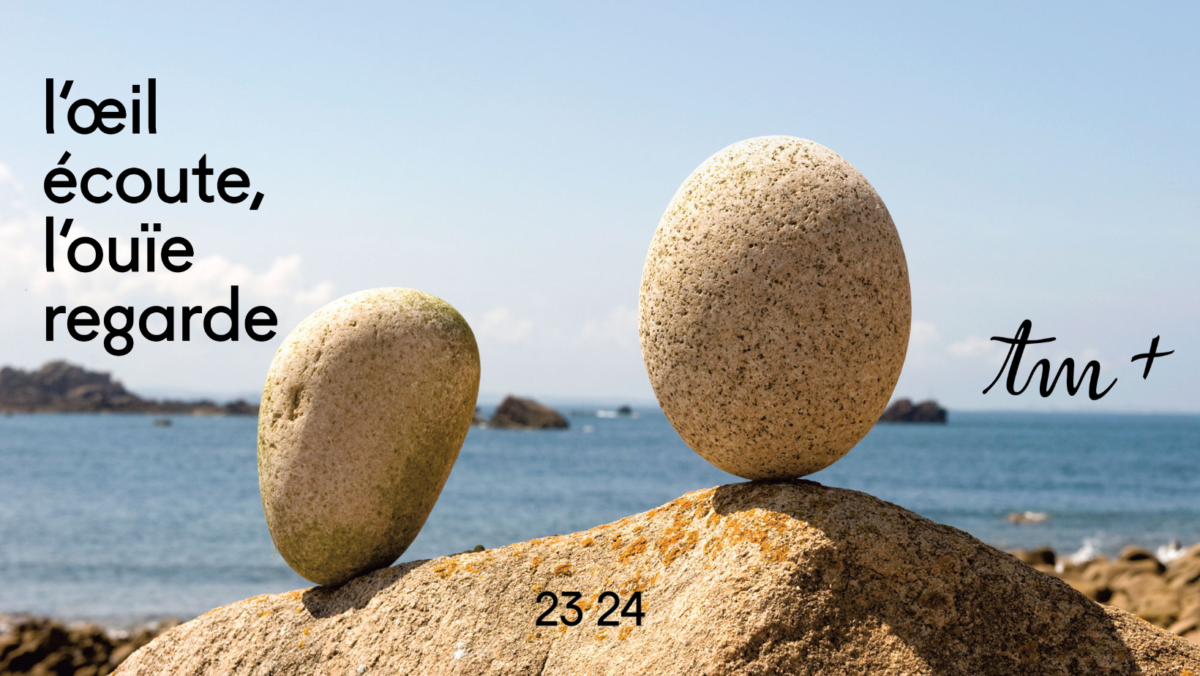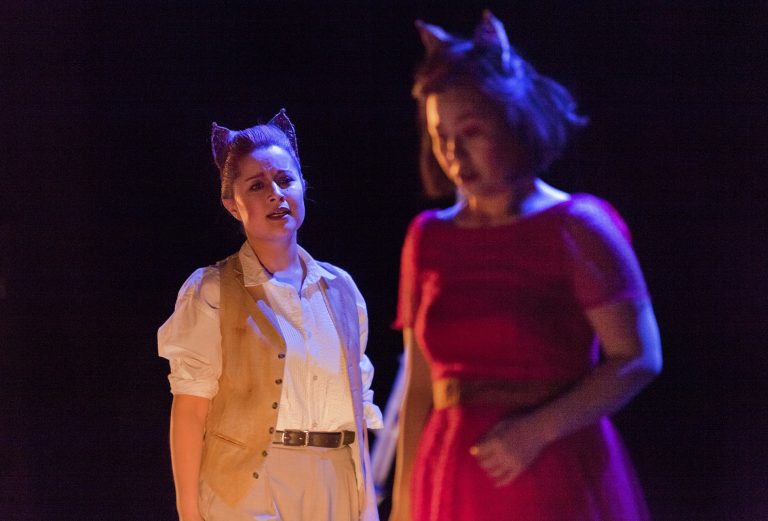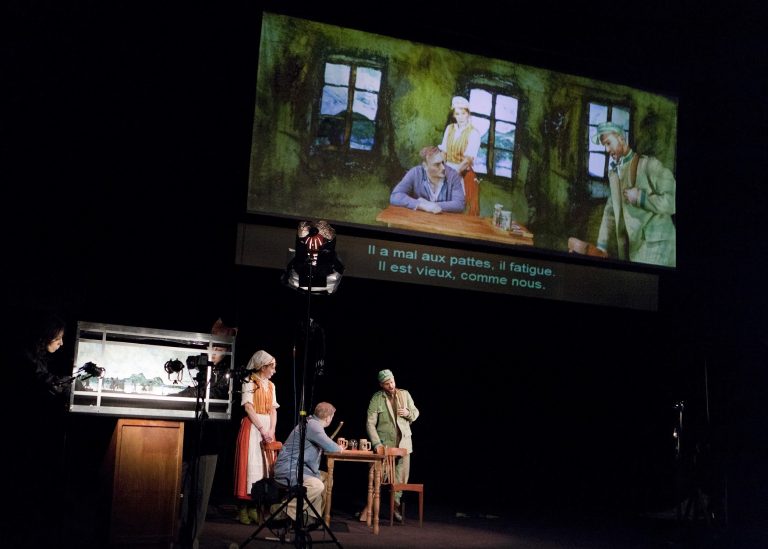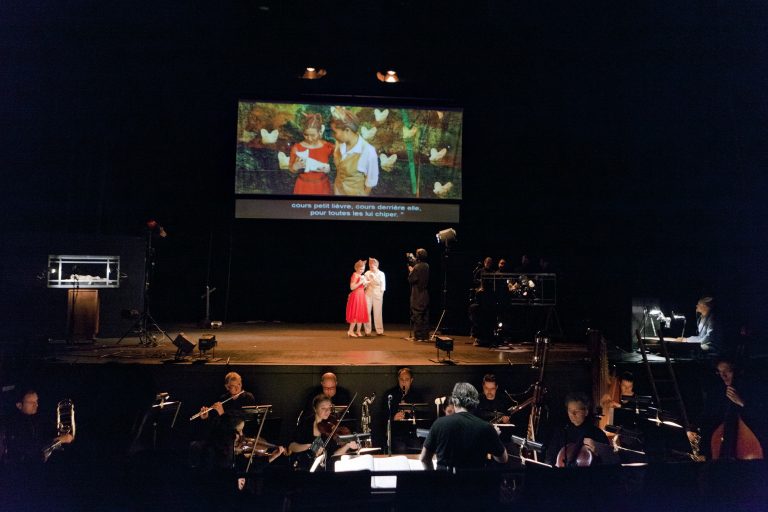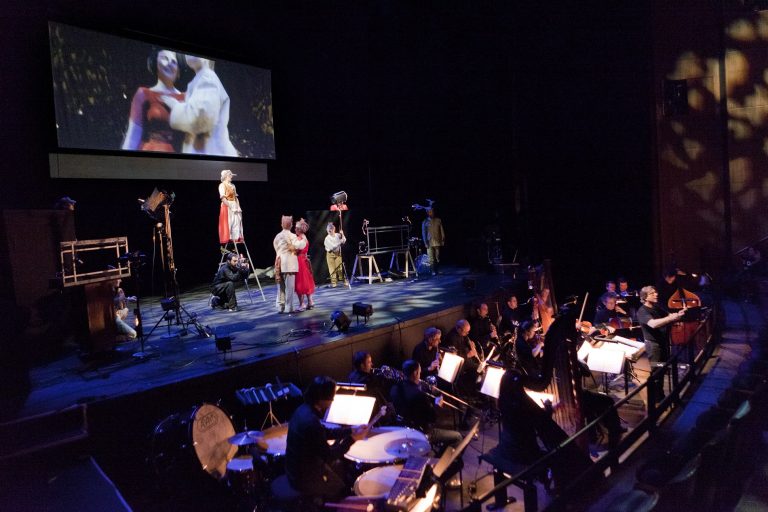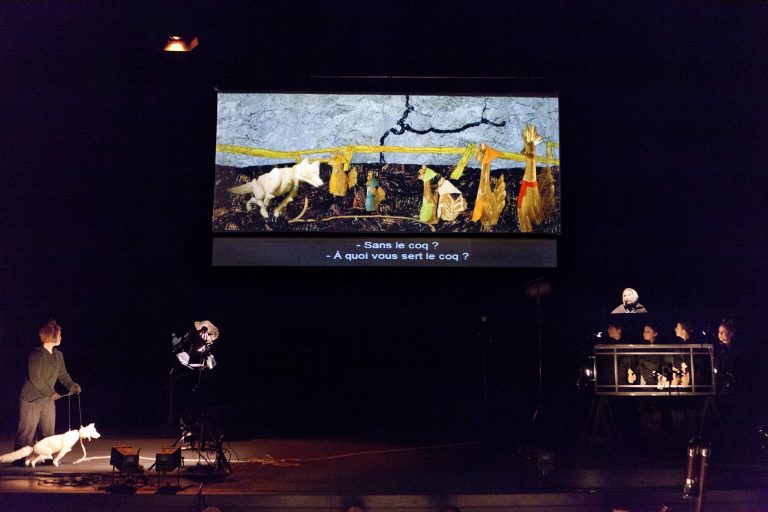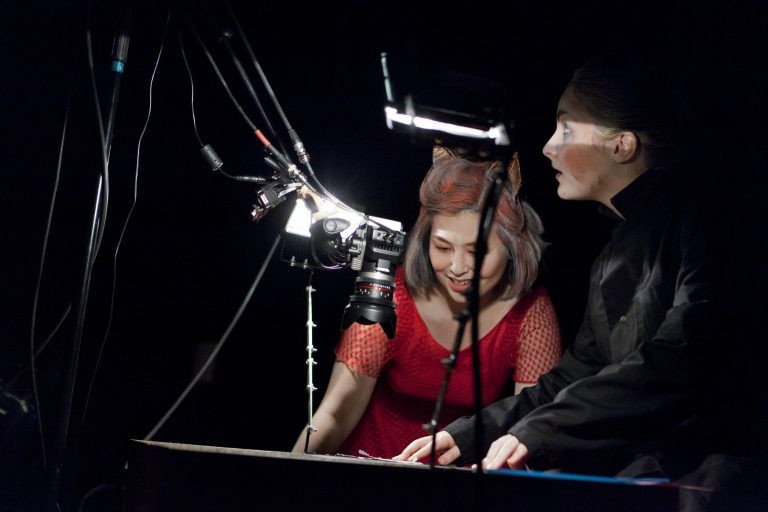The Cunning Little Vixen
Noriko Urata Soprano Bystrouska the Vixen
Caroline Meng Soprano the Fox, the cricket, the rooster
Philippe-Nicolas Martin (2016),
Laurent Bourdeaux (2017) Baritone the forester
Paul Gaugler Tenor the schoolmaster, the gnat
Wassyl Slipak (2016),
Philippe Cantor (2017) Bass the parson, the badger, the poacher
Françoise Masset Mezzo-soprano the forester’s wife, the owl
Sylvia Vadimova Mezzo-soprano the dog, the woodpecker, the innkeeper, a young vixen
Joanna Malewski Soprano the grasshopper, Pepik, the hen, the jay, a young vixen
Sophie-Nouchka Wemel Soprano the frog, Frantik, a young vixen
Gilles Burgos Flute
Jean-Pierre Arnaud Oboe
Frank Scalisi Clarinet
Yannick Mariller Bassoon
Eric du Faÿ,
Christophe Struzynski French horn
André Feydy Trumpet
Olivier Devaure Trombone
Gianny Pizzolato Percussions
Anne Ricquebourg,
Audrey Perrin (2016),
Marie Klein (2017), Harp
Noëmi Schindler,
Dorothée Nodé-Langlois Violin
Marion Plard Viola
Florian Lauridon Cello
Antoine Sobczak Double bass
Have you ever seen a feminist fox?
In this “animated opera,” constructed before our very eyes, the music of Leoš Janáček puts freedom in tune with desire.
Among the classic pieces of music featuring obligatory animals, Prokofiev’s Peter and the Wolf, and The Carnival of the Animals by Saint-Saëns are well known. But we should henceforth count among them the poetry of Leoš Janáček’s The Cunning Little Vixen, as staged by Louise Moaty last season. Nature and freedom are the driving themes in this fable of desire, completed in 1923 by an old composer falling deeply into a new love, among others in the prime of their lives.
Inspired by an illustrated serial, the opera morphs into an optical spectacle which carries us away, via magic lantern, toward the imagination of Méliès and the landscapes of Schiele. The cameramen share the stage with the singers, who we then find embedded on the screen behind the set, frolicking with marionettes in a childlike spirit less evocative of Disney than of Alice in Wonderland.
A paean to nature, where nothing ever really dies; an anthem for the delirious freedom of youth, for all the risks we take and the love that goes into them. Caught up in the cycle of life, we wind up believing that the composer could never have dreamed up a more seductive, audacious, or elusive vixen. Who could be sure not to fall in love with her?
In the press
“[…] Dans la fosse […] réside l’autre miracle du spectacle. A la tête de son ensemble TM+, Laurent Cuniot réussit le tour de force de restituer tout le foisonnement orchestral de la partition luxuriante de Janacek. […] Un travail de coloriste d’une incroyable précision et qui semble parfaitement répondre à la mécanique parfaitement huilée de Louise Moaty. »
Le Figaro, Thierry Hillériteau, 11 mars 2016.
“La Petite Renarde rusée […] est à ranger parmi les spectacles lyriques les plus originaux et attachants de ces dernières années.”
À Nous Paris, Alain Cochard, 13 mars 2017.
On tour
Production Arcal, compagnie nationale de théâtre lyrique et musical.
Coproduction TM+, Maison de la Musique de Nanterre, Fondation Orange, Les 2 Scènes – Scène nationale de Besançon.
With the support of d’Arcadi Île-de-France.
Editions Universal. Version pour 16 musiciens de Jonathan Dove.
Additional mention
Prize of « BEST CREATOR OF SCENIC ELEMENTS » awarded to Louise Moaty by l’association La Critique.
Photographic credit Enrico Bartolucci
